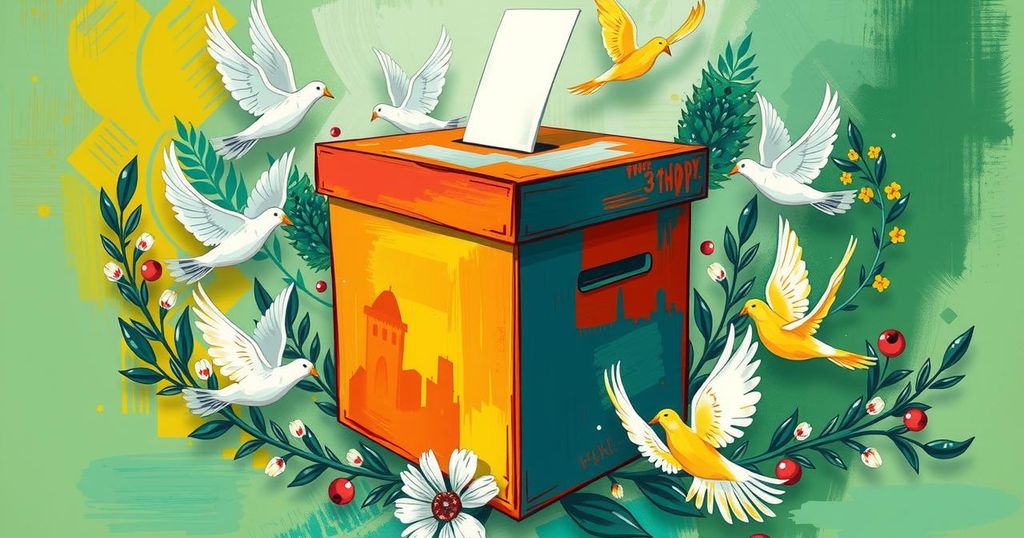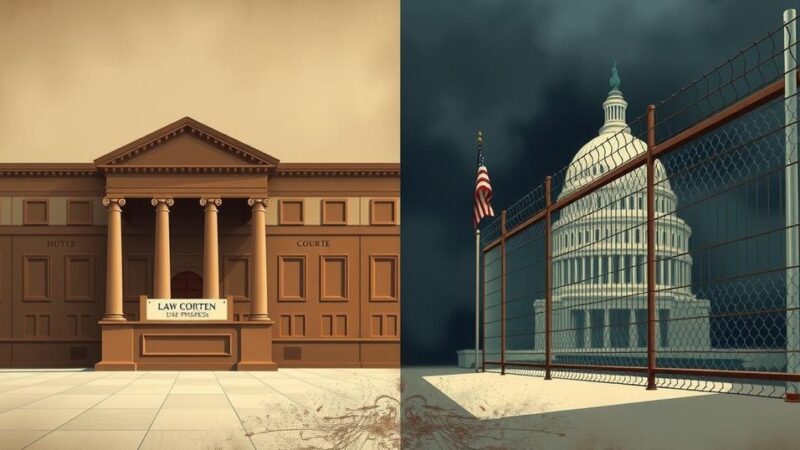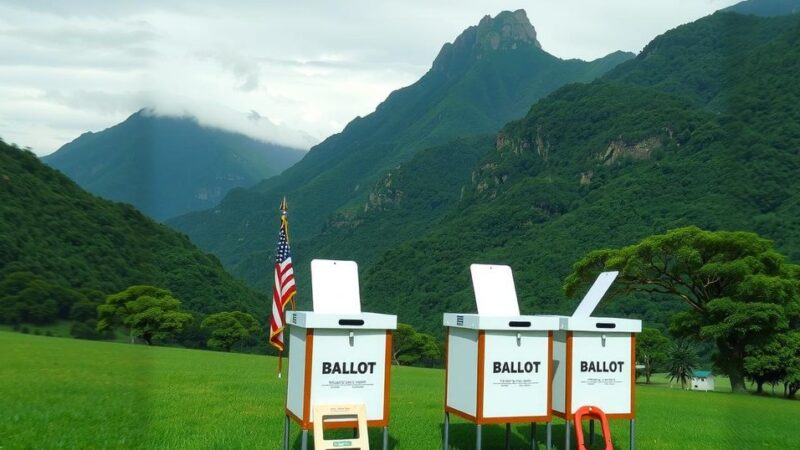Gabon prepares for its first presidential election since the 2023 coup that terminated the Bongo family’s 56-year rule. Brice Oligui Nguema, the current military leader, seeks to legitimize his administration, facing off against ex-Prime Minister Alain Claude Bilie By Nze. Analysts predict Nguema’s victory due to his popularity and control over political structures, amidst hopes for economic diversification and improved governance among the populace.
Gabon is set to conduct its presidential election on Saturday, marking the first such event since a coup took place in 2023, which ended the Bongo family’s lengthy 56-year rule. The military authorities, led by Brice Oligui Nguema, aim to establish legitimacy and consolidate their power through this election. Nguema assumed power in August 2023 amid a series of coups disrupting democratic progress across West and Central Africa.
Brice Oligui Nguema, who had initially promised a return to civilian governance, ultimately declared himself the head of the transitional government and is now a candidate in the forthcoming election. His primary opponent is Alain Claude Bilie By Nze, previously Prime Minister under the Bongo administration. By Nze has created the “Together for Gabon” movement to separate himself from the discredited leadership of the Bongo regime.
Political analysts suggest Nguema has a high likelihood of winning, bolstered by his incumbency and popularity due to his role in ending Ali Bongo’s unpopular leadership. However, Nguema’s government remains tightly controlled, with loyalists strategically positioned in the senate, national assembly, and constitutional court. He envisions a rejuvenated Gabon, remarking on his commitment to building the nation.
The nation, which has approximately 2.5 million inhabitants, has historically faced socioeconomic disparities, with a select elite living in luxury funded by oil revenues while many citizens remain impoverished. Ali Bongo’s contentious re-election in 2016 led to widespread protests, followed by Nguema’s military intervention to dismiss the result as fraudulent.
The transitional government has recently shown promising signs, with the economy experiencing growth attributed to infrastructure initiatives and increased commodity output. However, the country remains dependent on declining oil production and is under pressure to diversify its economy by fostering agriculture, industry, and tourism.
Citizens are hopeful for a transformative outcome from this election. Pépecy Ogouliguendé, a civil society activist, expressed anticipation for results that foster transparent governance and improved living conditions in sectors such as education and health.
The upcoming presidential election in Gabon is significant, occurring after a military coup that dismantled the long-standing Bongo dynasty. The election pits incumbent Brice Oligui Nguema against former Prime Minister Alain Claude Bilie By Nze, with the result poised to affect Gabon’s governance and economic future. While there are hopeful signs of progress, the nation’s reliance on oil and the need for economic diversification remain critical challenges. The outcome is closely watched by both citizens and observers across the region.
Original Source: www.thestar.com.my






